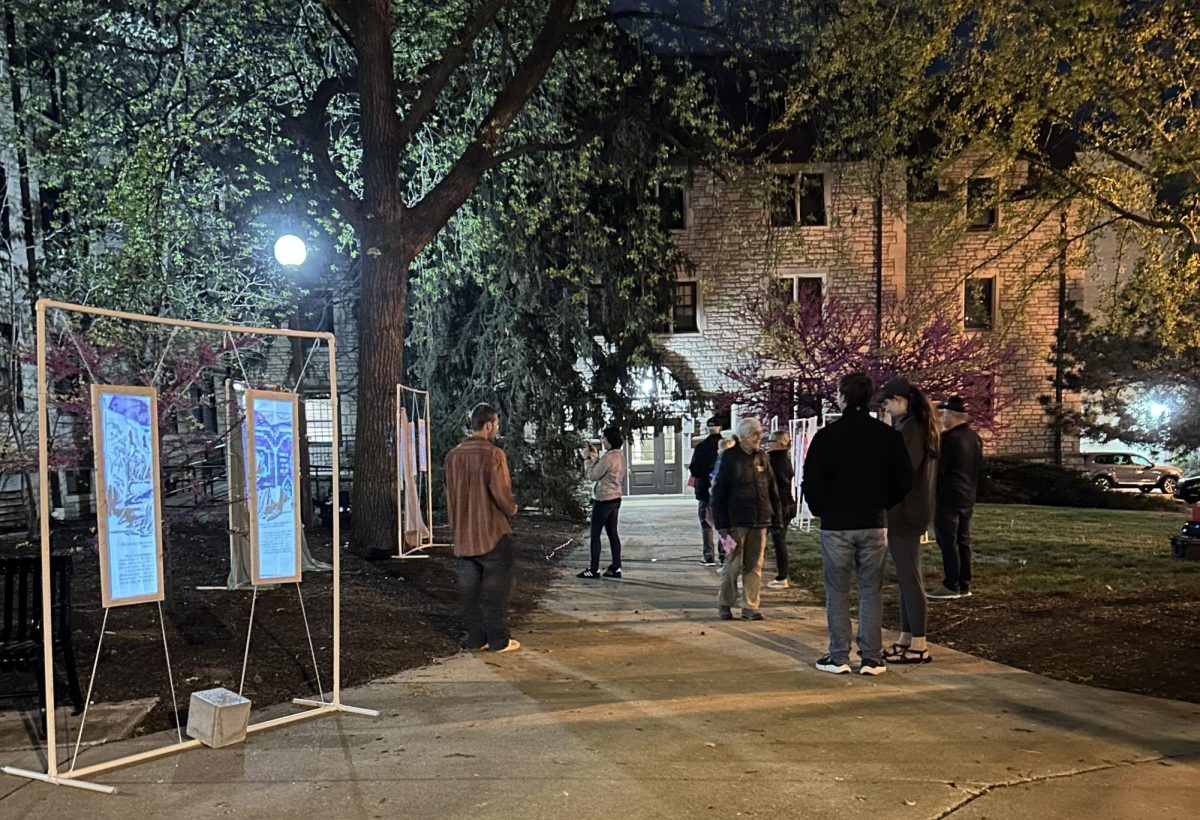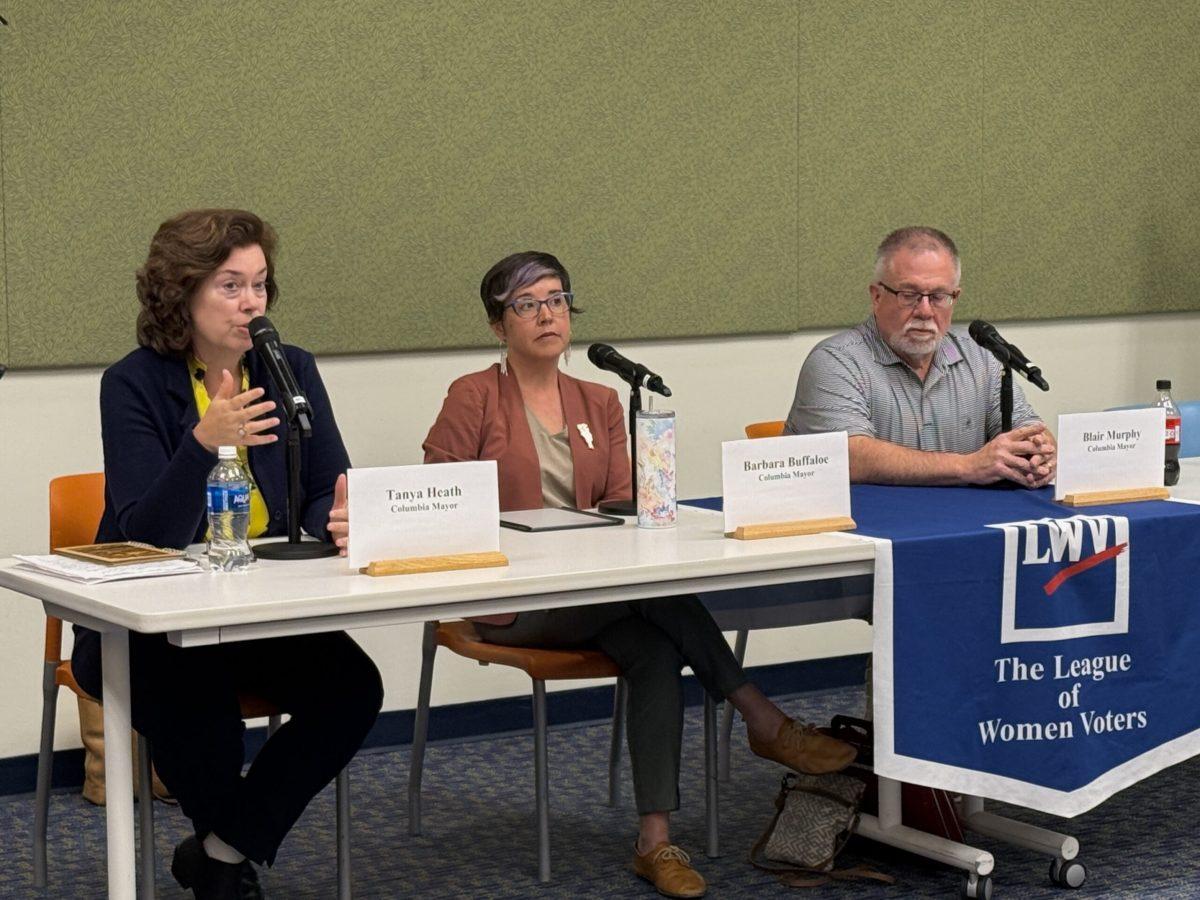_Dear Netflix,_
I know all of us are just twiddling our thumbs until the next season of “OITNB” comes out. June’s pretty far away though; and besides, what if I told you I found something better?
“Wentworth” is an Australian drama set in (you guessed it) a women’s prison. Believe me when I say it’s everything you wish “Orange Is The New Black” could be.
This is the best way I can compare “Wentworth” to “OITNB” is to compare the British and American versions “Skins.” “Skins UK” is an edgy, overwhelmingly emotional and unpolished look at what teenage life can be like. TV in the U.S. can do emotional and edgy every once in a while, but it fails 100 percent of the time at being unpolished. “Skins US” turned the heartbreak of the original series into a shallow commentary on party-culture; it was cancelled pretty much immediately.
So, where “Orange” features dark plot lines at times, it always comes back to Piper’s positivity, perfectly made-up faces and commentary on universal problems.
“OITNB” likes to focus on things like relationship problems; Piper enters prison with a fiancé but discovers her ex-lover there and can’t decide between the two. This is something we can all relate to. Problems like this are what humanize the inmates and make us want to keep watching.
Nonetheless, “Wentworth” takes a more admirable approach. In reality, we CAN’T understand what prisoners are going through. We don’t know how their lives work within those walls. In “Wentworth,” we see a prison riot in the first episode; many get injured and one character gets killed. The inmates aren’t dulled down for TV, drawing us in even more effectively.
Bea Smith is the lead, a broken woman awaiting trial for attempted murder of her husband. He abused her; she was trying to escape.
Like Piper in “OITNB,” Bea enters prison fairly timid and afraid. Unlike Piper, who cries under bright lights and soon collects a gaggle of friends to comfort her, when Bea sobs alone into a torn picture of her adolescent daughter, I believe it.
At Wentworth Prison, the women have short bursts of happiness amongst the misery. In “OITNB,” they have short bursts of misery amongst the happiness. Which scenario is more realistic? I’d bet it’s the former.
In both, there are lesbian top dogs. In both, the lead feels out of place. Despite their similarities, though, the shows have remarkably different feels. I was legitimately sobbing by the end of “Wentworth”’s second episode. My boyfriend was crying by the middle of the first.
The characterization in “Wentworth” isn’t even considerably deeper than in “OITNB.” The characters lead monotonous daily lives, which doesn’t easily lead viewers to a comprehensive understanding of their inner-selves.
There are flashbacks in both series, which helps a bit, but “Wentworth” could almost stand without them. In “Wentworth,” we see the prisoner’s pasts through their sad eyes and through their reactions to the trauma they face behind bars. This doesn’t work for “OITNB,” which leans on flashbacks for characterization, because the characters are too happy, too friendly, too fake in their prison lives.
“Wentworth” is a prequel of sorts to a show from the late ‘70s and early ‘80s called “Prisoner: Cell Block H.” The original series featured Bea Smith as a ruthless queen bee and a few other characters we see in “Wentworth.” It was wildly popular, especially in the U.S.
“Wentworth” isn’t nearly as popular here. In fact, I hadn’t heard of it until scrolling Netflix one day. But “Wentworth” has the draw-in of “Downton Abbey” with the violence and mayhem of “Breaking Bad” and deserves all the fans it can get.
If anything, it’s fun to observe the differences between American and Australian prisons. Some things are the same but have different names. SHU (segregated housing unit, if you’re not familiar with prison slang) is called “the slot” in “Wentworth.” A warden is a “governor.” And apparently prisoners are allowed to have their children with them? There’s only one child around in the first few episodes, but it was quite a culture shock as a viewer.
You’ll pick up on the differences pretty quickly, though. Then it’s just a matter of falling in love with Bea’s silent strength and empathizing with the politics of being an officer (something “Wentworth” does much better than “OITNB”).
Give it a shot, guys. There are two seasons out now, which may not tide you over until June, but you’ll definitely have a new perspective going into season three of “Orange Is The New Black.”
_Love,_
_Elana_






